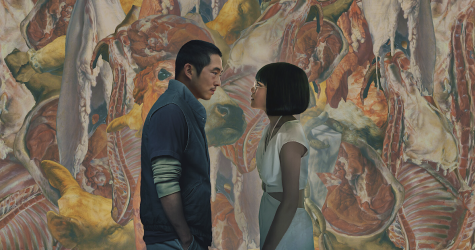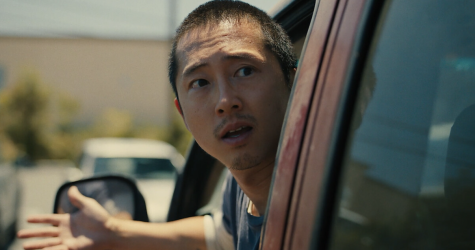Angry and Asian (AAPI Month TV Spotlight: Beef)
May 17, 2023

Hostility. Grudge. Tension. Beef. Beef can arise from many things, but it’s certain that all beef is bothersome and lingering. Beef doesn’t just go away. Beef sticks, meddles, infiltrates, and pervades–that to a point it ruins the people involved in it. Beef is anger. This past April, Netflix released Beef and it created a sensation by sharing its very own take on the study of anger through a distinct Asian-American lens. The show stars actor Steven Yeun and comedian Ali Wong as Danny Cho and Amy Lau respectively, whose “Beef” essentially sizzles from their vastly different positions in life, but cooks from the same struggles they face as hyphenated Americans.

To quickly whip up the plot, the show revolves around hustling contractor, Danny Cho, who is struggling to make ends meet for himself and his family, and successful plant business owner Ali Wong, who is suffering from the expectations pushed onto her by her business and family. Although at completely different ends of the ladder, both Danny and Ali are FED. UP. So, when they happen to get involved in a road rage incident with each other, oh, the “Beef” starts to stir. The rest of the show unravels with the two making various attempts to seek revenge on each other amidst their personal turbulence and frustrations in life.

Behind all the vengeance that Beef clearly highlights, the show vaguely yet significantly touches on the complexities between socio-economic status and racial ethnicity in America. Beef tackles this intersection with the Asian-American representation in the show. For so long, Asian-Americans have been influenced by the notions behind assimilation, immigration, affluence, and race. As second-and onward generation Asian-Americans pursue their lives in this country, we have come face to face with generational trauma. As the “othered” people, we’ve adapted to the oppression, typecast, and stigma around us. Just as easily we naturally learned how to walk when we were babies. But such repression and stifling eventually meets its limit– and the rupture of that limit is what Beef shows. The societal depiction of Asian Americans as incapable of rage or anger prevents us from reaching the fullness of our humanity with the rest of society. Literally, Beef shows us angry Asian-Americans, revealing that perhaps anger is the answer to reminding us of the complexity of the human experience.


